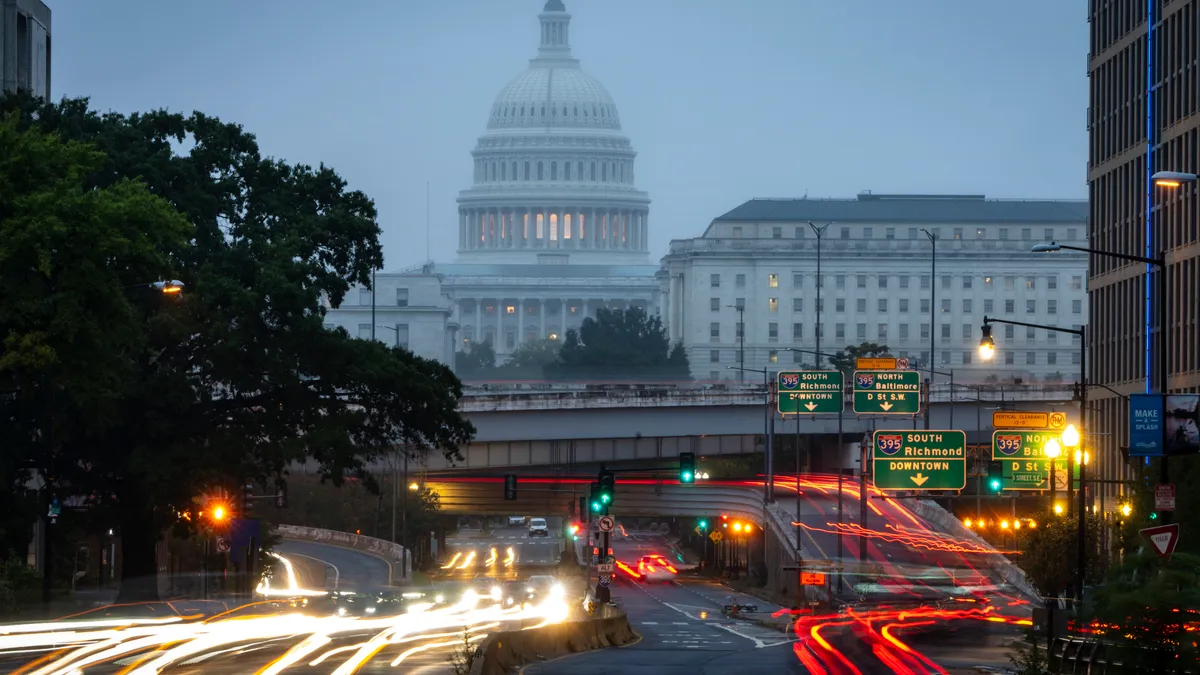Dive Brief:
- Sens. Debbie Stabenow, D-MI, and John Boozman, R-AR, introduced Wednesday a bill that would define a new asset class — digital commodities — and let the Commodity Futures Trading Commission (CFTC) oversee the trading of tokens, including Bitcoin and Ether, that meet that standard.
- Under the plan, digital commodity platforms — brokers, custodians, dealers and trading facilities in the space, as well as associated persons — would have to register with the CFTC.
- Stabenow and Boozman, the chair and ranking member of the Senate Agriculture Committee, which oversees the CFTC, told reporters Wednesday they want to advance their bill through their committee as early as September, according to Bloomberg.
Dive Insight:
Stakes in the turf war over crypto oversight have heightened in recent months as the value of tokens has plummeted, prompting bankruptcies of high-profile platforms such as Celsius and Voyager.
Wednesday’s bill is hardly the first to attempt to delineate regulation in the crypto space. Sens. Kirsten Gillibrand, D-NY, and Cynthia Lummis, R-WY, unveiled a bill in June that sought to clarify which digital assets would be commodities versus securities.
That question has permeated numerous discussions on how to police crypto. The Securities and Exchange Commission (SEC), over the past year, has leaned on the 1946 Howey test to define certain crypto products as securities and has come under fire from industry leaders such as Coinbase, which have accused the agency of “regulation by enforcement.”
The Stabenow-Boozman bill would exclude securities from the “digital commodity” tag. A handful of crypto firms last fall detailed their visions of ideal crypto regulation, with Coinbase recommending a new regulator be established altogether, and Ripple pushing for oversight dovetailing closer to the CFTC than the SEC.
The bill comes in response to what Boozman calls an oversight vacuum in crypto, “governed largely by a patchwork of regulations at the state level” that “simply is not an effective way to protect consumers from fraud,” the senator said Wednesday in a press release.
“One in five Americans have used or traded digital assets — but these markets lack the transparency and accountability that they expect from our financial system,” Stabenow said in a statement. “That’s why we are closing regulatory gaps and requiring that these markets operate under straightforward rules that protect customers and keep our financial system safe.”
Under the bill, exchanges such as Coinbase or FTX would have to monitor trading, maintain customer-protection standards and offer assets that are not susceptible to manipulation. Disclosures would likely lack the detail the SEC would require, but the CFTC would be forging its rules from scratch.
Wednesday’s bill would require the CFTC to write a report on the consumption and sources of energy used to create and trade digital commodities, and to periodically publish reports on the matter on its website. It would also have to study the racial, ethnic and gender demographics of customers in the digital-asset market and report on how that impacts rulemaking, outreach efforts and other activities.
Stabenow and Boozman’s legislation comes less than a week after the House Financial Services Committee delayed until at least September a draft bill on digital asset regulation. Meanwhile, the SEC has renewed its push to persuade crypto firms to register with it.
The regulator is also reportedly investigating whether Coinbase is letting its U.S. users trade tokens that should have been registered as securities. In connection with a Justice Department insider-trading case involving a former Coinbase product manager, the SEC said it determined seven of the tokens listed on the exchange — and traded among the suspects — were securities. In response, a fellow regulator, CFTC Commissioner Caroline Pham, criticized the SEC’s regulation tactics.
“They go out unilaterally to try to establish precedent that’s going to dramatically reshape the landscape as to what’s a security and what’s a commodity,” Pham told The Wall Street Journal, referring to the SEC.















